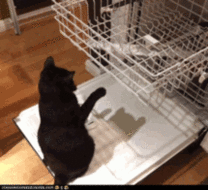by Nina Post
As a company founder, most of the problems you deal with will be divergent problems, which are problems that have no single unique solution but a lot of potential solutions.
And before you say anything, I know that most of the problems you encounter can be classified as a shit-storm, shit-cyclone, or shit-nado, and that "a lot of potential solutions" means scrambling to find the best shit-blocking umbrella in the least amount of time.
In any case, you're always in a time crunch, and don't have a lot of time for protracted creative problem solving. Recent studies on Divergent Thinking and Immediate vs. Delayed Incubation will clear up the role of unconscious thought and task interpolation so you can get a better idea of what's effective for a creative problem-solving incubation period.
Divergent vs Immediate Incubation
There are two incubation paradigms in the incubation stage of the creative process. This process, according to Graham Wallas, has four stages: Preparation, Incubation, Illumination, and Verification.
With Delayed Incubation, you work on the problem, go do an undemanding and dissimilar task, and return to the problem for a post-incubation work time.

With Immediate Incubation, you get information on the problem, delay conscious work on it (possibly because you're too busy having a moderate panic attack)—and do an unrelated task immediately after the main problem, before returning to the problem for uninterrupted work.
Meta-analyses and recent studies reveal that incubation periods, whether delayed or immediate, do have beneficial effects. Delayed Incubation resulted in better decisions than Immediate Incubation, but both types are beneficial relative to no incubation period.
One way to optimize the Delayed Incubation period is to break away for an undemanding task, like cleaning or showering. One meta-analysis showed that the benefits are greater for an undemanding task compared to a demanding task or no task at all.
Unconscious Work
With Delayed Incubation, “beneficial forgetting” facilitates fresh starts—AKA “set shifting”—when you take up the problem again. As you look for the solution to a problem, you might lead yourself down misleading or incorrect paths. Set shifting weakens those paths.
The good news is that Immediate Incubation, though it doesn't allow time for sets to get established, does permit some unconscious work.
There's also support for an even more expedited problem solving process.
The Fresh Look Hypothesis
The Fresh Look hypothesis is a variant of the Beneficial Forgetting approach, and supports the role of attentional shifting in Delayed Incubation. The study indicates that simply removing attention from the target task is sufficient, and that the length of the incubation period or tasks performed during that period isn't important.
Incubation Options
You have a few options when it comes to the incubation period of the creative problem solving process. When you get information about a problem, you can (1) sit with the problem for a while, then go do an undemanding and dissimilar task before coming back to it.
Or you can (2) do an undemanding and dissimilar task immediately then return to the problem (yay). And if you're really pressed for time, (3) just shift your attention to something else and then come back to the problem. Ideally, you'd do the first one: work on the problem for a bit, then go do an undemanding and dissimilar task before returning to the "three-ring shit show" that is your life at the moment.
gifs by giphy.com